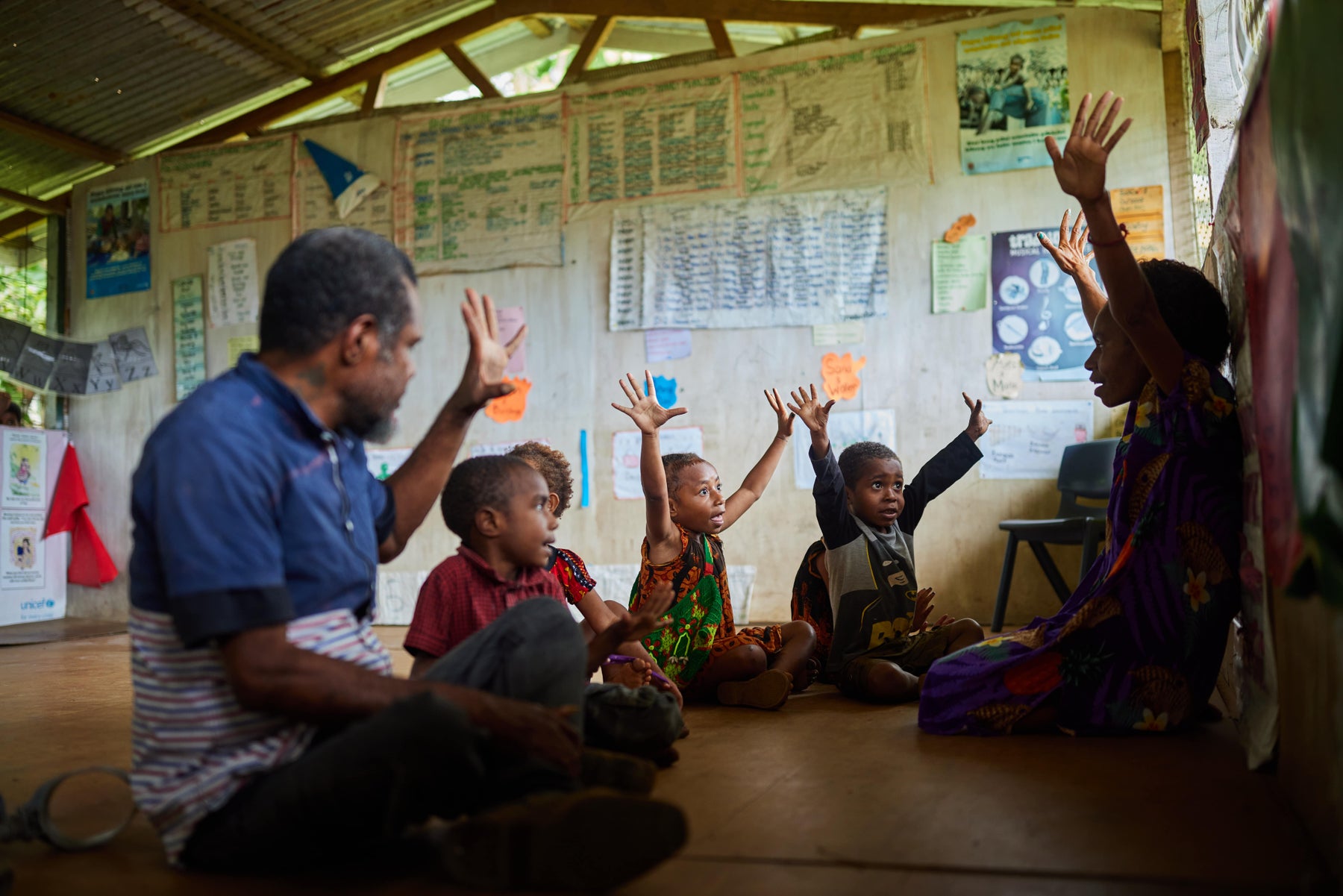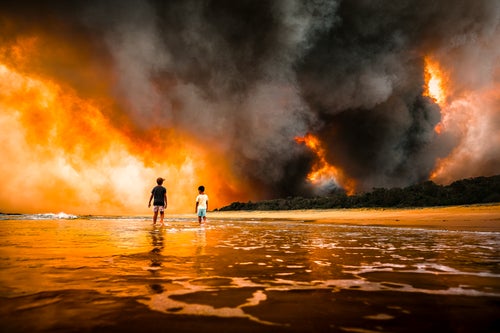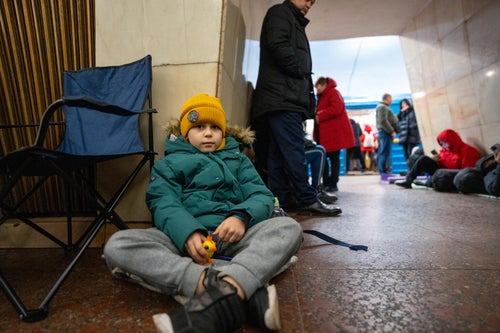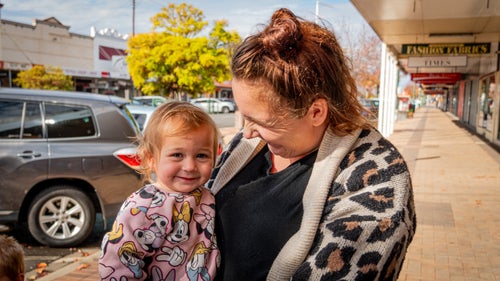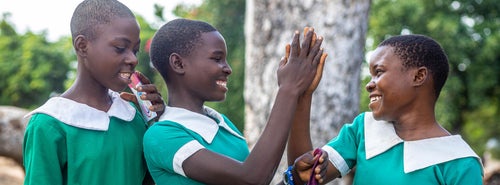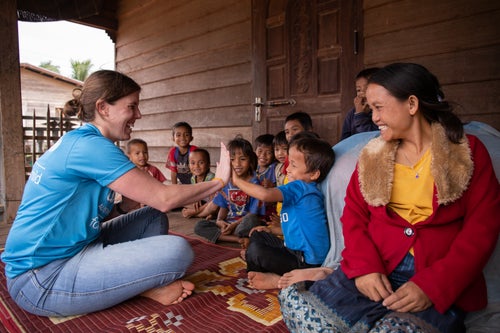In a village in Papua New Guinea's Morobe Province, where there is limited early learning opportunities, children aged three to six at an Early Childhood Education Centre (ECE) are learning about inclusion in the classroom. The initiative is being led by two ECE teachers, Tane and Rueben, who know first-hand the challenges children with disabilities face day-to-day.
When one of the ECE teachers, Rueben, was five years old, he contracted polio, a virus that can cause paralysis. Easily preventable with a polio vaccine, the virus is transmitted via contaminated water or food or by a person while they are infectious. For Rueben, polio caused life-long paralysis in his right leg. This means he must use crutches to get around. Volunteering to become a teacher at the ECE, the community came together to build a ramp with a railing so that Rueben could easily access his classroom.
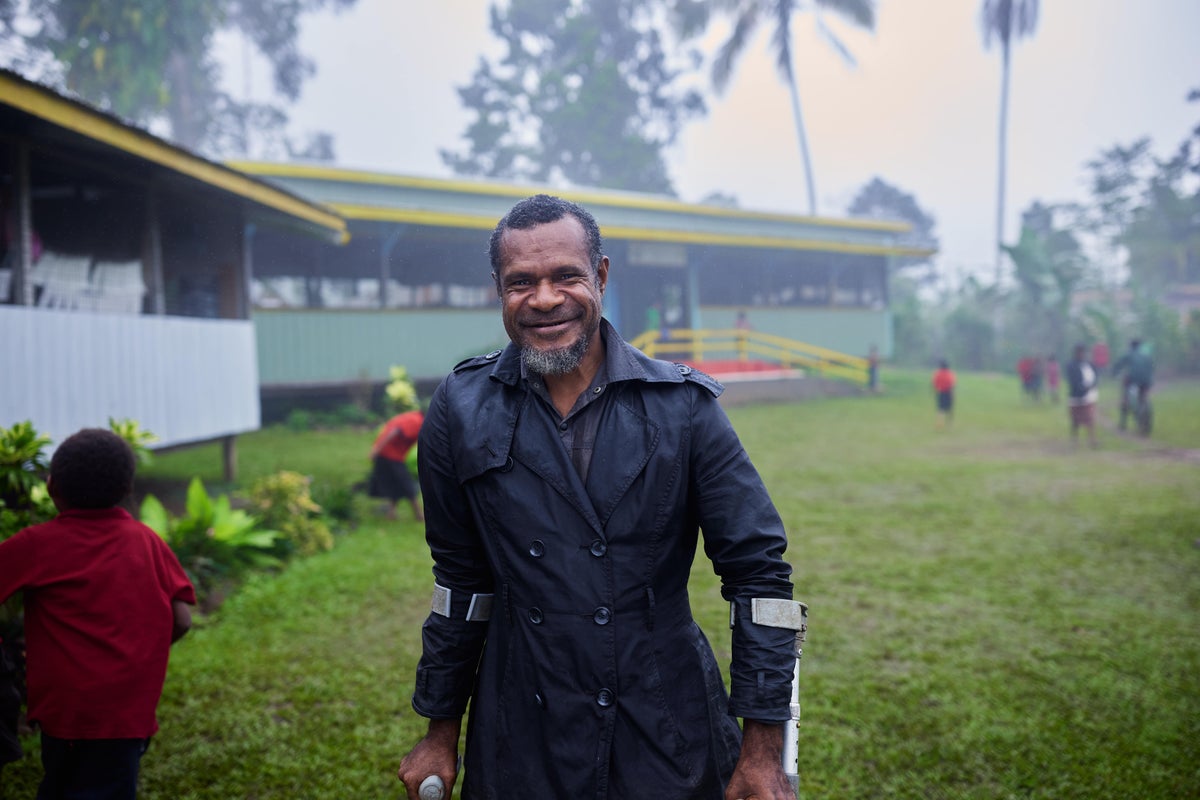
Having Rueben at the school helped other children with disability, like six-year-old Phillandrah, feel included in the school community.
"It has always been hard to enrol Phillandrah in school because of her disability. But this school accepts children with disabilities, and it is a good school."
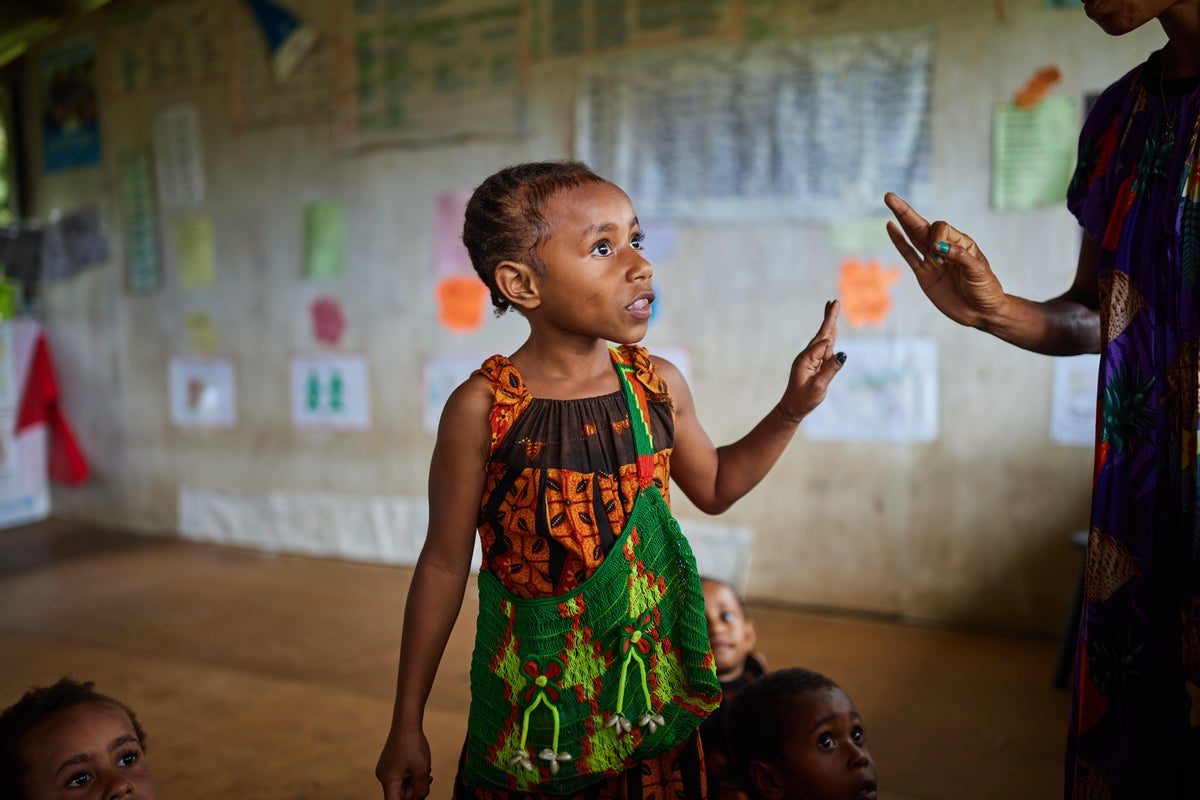
Phillandrah and the other children in the class are taught by teachers who are fluent in sign language. They not only communicate with Phillandrah, who cannot hear or speak, but they also encourage her classmates to learn and use sign language as well.
Although Phillandrah is happy and feels included, Linda and her husband still worry about their daughter's future.
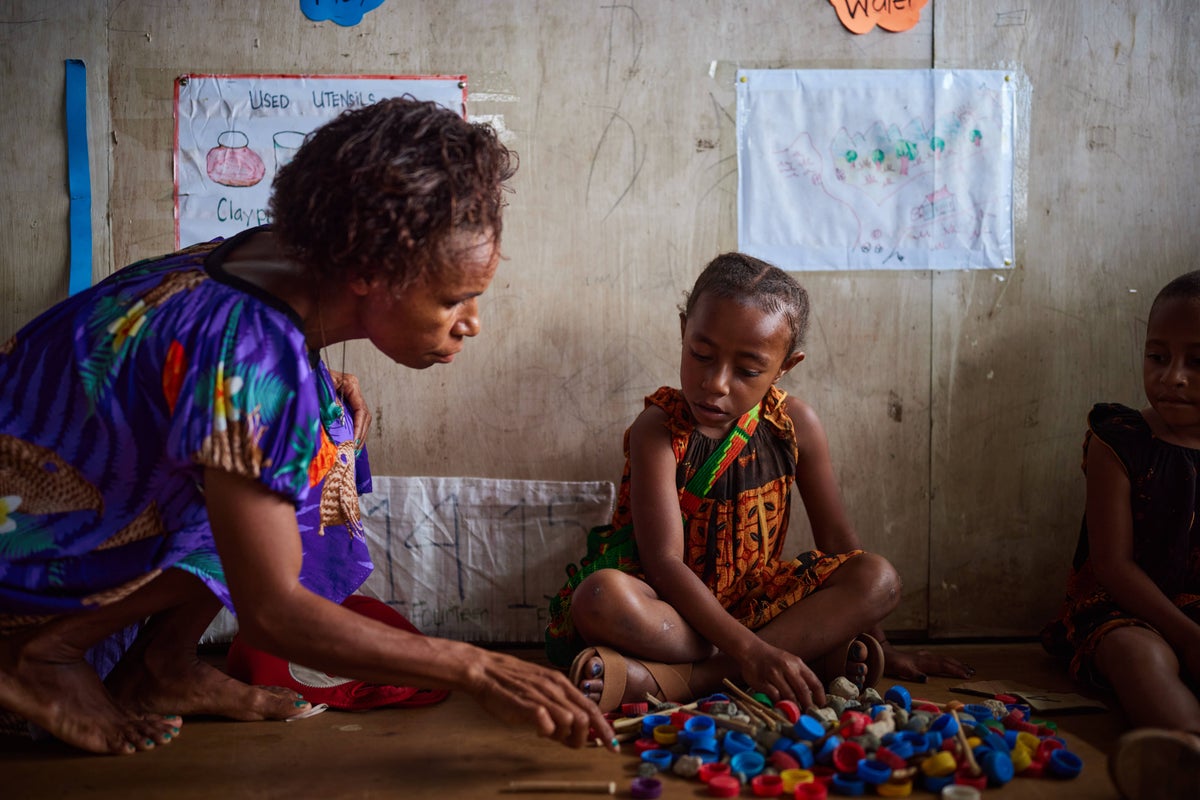
"Phillandrah cannot remain in this school forever. I’m not sure where she can continue her education. I don’t know what the future holds for her. I’m a high school teacher, so I know how important education is, and I want my child to get a good education. I’m even seriously thinking about going for further studies to learn about teaching children with disabilities so I can teach my own child."
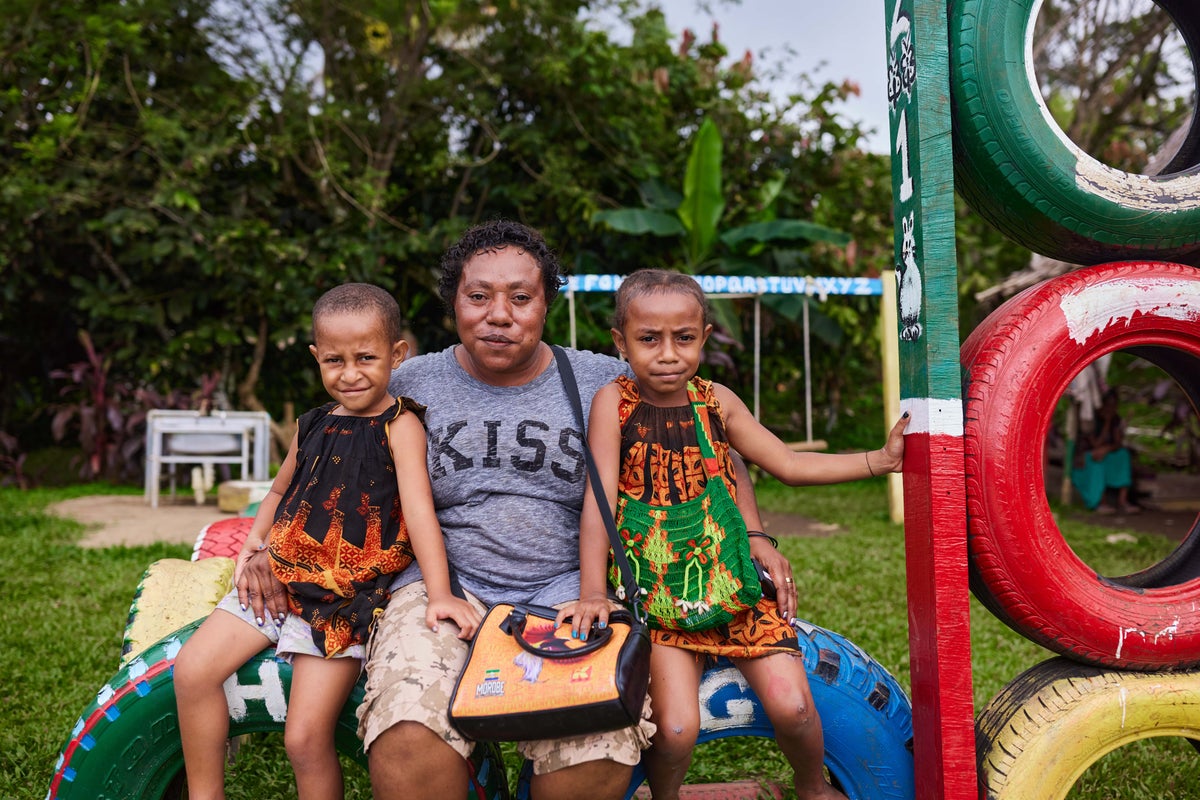
Encouraged to continue with his education when he was a child, Rueben completed high school and went on to study education so that he could have a positive impact on children who are growing up in Papua New Guinea with a disability.
"Every school in Papua New Guinea must learn to be more inclusive, so they can help those people that live with disabilities."
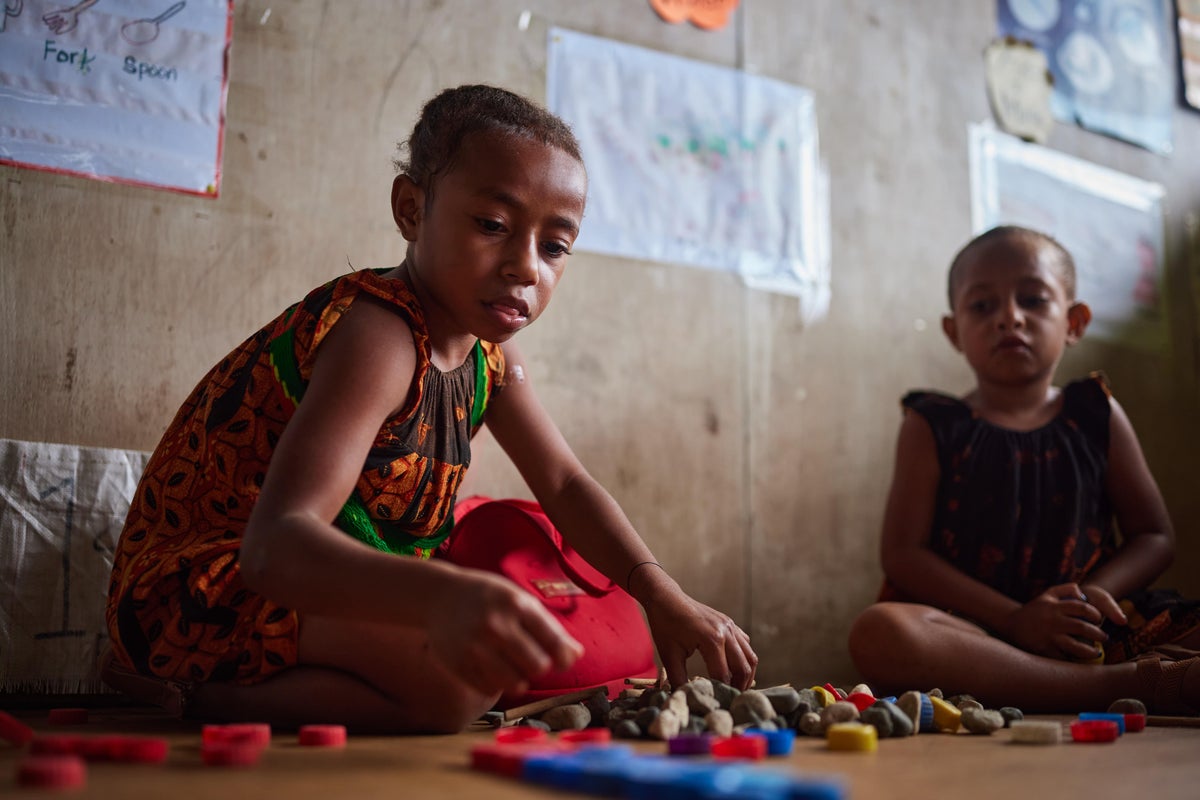
This Early Childhood Education Centre is part of UNICEF’s Convergence Program in Papua New Guinea – a multisectoral program which includes activities across health, nutrition, education, water, sanitation and hygiene (WASH), child protection, and social policy. The program is delivered in two districts in two provinces (Morobe and Madang provinces).
This program is supported by the Australian Government through the PNGAusPartnership.
Help deliver essential newborn care
UNICEF is working in Papua New Guinea to improve essential newborn care to ensure children not only survive but thrive.
Related articles
Stay up-to-date on UNICEF's work in Australia and around the world



